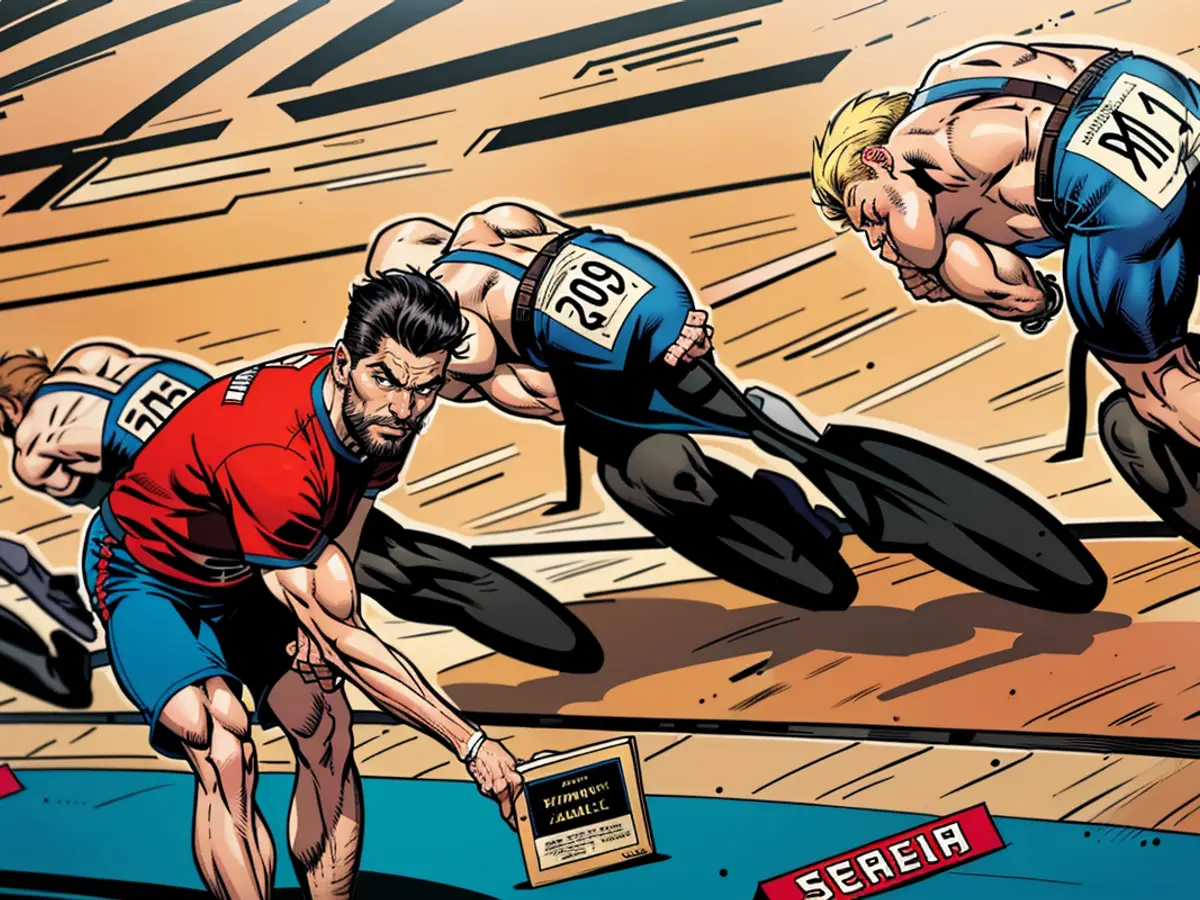Female quartet surpasses competitors and clinches World Cup second place.
After two decades of anticipation, the wait for a World Championship medal in men's team pursuit finally concluded. Tim Torn Teutenberg and his teammates triumphantly raised their arms as they stood on the podium, having clinched the bronze medal. The German quartet of Benjamin Boos, Teutenberg, Ben Felix Jochum, and Bruno Kessler notched their first World Championship medal in 22 years by besting the Japanese team in the 4000-meter team pursuit in the Ballerup Super Arena in Copenhagen, Denmark. Although the Japanese team experienced a crash during the final lap, the Germans managed to cross the finish line in 3:52.707 minutes, securing their win. Even the women's team secured a silver medal in the tournament.
The joyous athletes shared their sentiments about the victory. Teutenberg expressed, "We all really wanted to win this medal. There was a bit of pressure knowing that it had been 22 years since the team last won a medal. So, the relief and joy are naturally immense." Jochum, the youngest team member at 20 years old, remarked, "It couldn't have gone better. I think this medal will give us a boost and help us on our way to the Olympic Games in LA."
Women's team triumphs in the final as well
Day two brought good fortune for the German team, as they celebrated two medals. The women's team, composed of Lisa Klein, Franziska Brauße, Laura Süßemilch, and Mieke Kröger, qualified for the final and put up a valiant effort. However, the British team proved to be too strong, eventually overcoming the German team.
The team had a remarkable comeback in the semifinals, outperforming their Italian rivals with a time of 4:11.602 minutes. Although they faced a three-second deficit on the final kilometer, the team managed to clinch the victory due to a remarkable comeback by Klein, Brauße, and Kröger, who were part of the gold-winning team in Tokyo. In the final, Lena Charlotte Reißner replaced Süßemilch, but the Germans were unable to maintain their momentum, ultimately falling short.
Team pursuit was a hallmark of German success
Winning a medal in the women's event was a promising goal for the German team, while the men's victory was an unexpected surprise. National coach Sven Meyer expressed satisfaction with the team's performance, particularly young athletes like Bruno Kessler and Ben Felix Jochum. "I'm especially pleased that our young athletes like Bruno Kessler and Ben Felix Jochum seized their opportunity," Meyer said. "Of course, we also had a bit of luck on our side, but no one asks about that later. The long drought is finally over," Meyer declared. The German team benefited from the absence of Olympic champions Australia and the crash by the Olympic bronze medalists from Italy in the first round.
The team pursuit had once been a symbol of German success, winning five Olympic titles and 16 world championship titles. The German team, led by Robert Bartko in Sydney 2000, became the first team to break the four-minute barrier. However, the team's fortunes fell in 2002, with multiple years of failing to qualify for the Olympics and eventually being eliminated in the qualification round in Paris.
After their impressive performance, the German women's team expressed their desire to continue their success in cycling, particularly in team pursuit events. Jochum, reflecting on their bronze medal win, mentioned, "Cycling is our passion, and we aim to build on this achievement in future competitions, such as the Olympic Games in LA." Later, during the team's celebration, Meyer, the national coach, emphasized the importance of fostering young talent in the sport, stating, "Encouraging young riders like Bruno Kessler and Ben Felix Jochum to participate in team pursuits will help ensure that German cycling maintains its high standard and excels in this exciting discipline."








